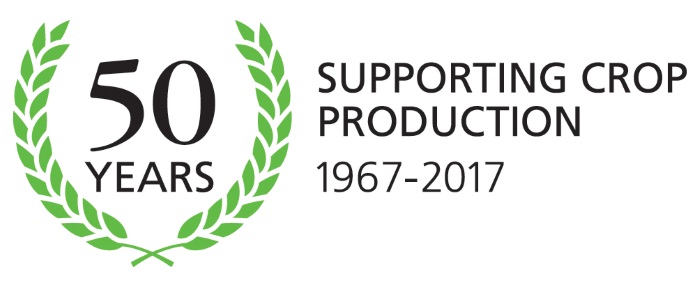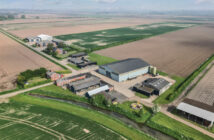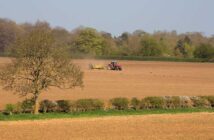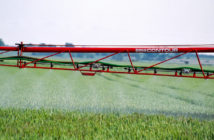The British Crop Production Council (BCPC) celebrates its 50th anniversary this year. Established in 1967, the independent charity provided a forum for those interested in the science of crop production, particularly pest, weed and disease control.
Formed initially by a merger of the Weed, Insecticide and Fungicide Councils, BCPC’s early membership was drawn from the fore-runners of organisations such as Rothamsted Research, the National Association of Agricultural Contractors (NAAC) and the Crop Protection Association (CPA). The first President was former Rothamsted Director Sir Frederick Bawden, a pioneer of research into plant viruses and a fierce campaigner for long-term research into crop production.
“Back in the 60s, increasing UK food production using new technology was the main priority,” says Dr Colin Ruscoe, BCPC’s Executive Chairman. “But current demands also encompass safety, the environment, research priorities – and the need for UK farming to be competitive and profitable. Provision of authoritative, unbiased information based on sound science is a key driver of competitiveness – and has always been one of BCPC’s main activities.”
The internationally acclaimed Pesticide Manual was first published in 1968, joined later by The UK Pesticide Guide – the “Green Book”. Later publications have included handbooks on pesticide application, The Manual of Biocontrol Agents and the Biotech Crops Manual.
BCPC’s events include its flagship Annual Congress, now back in its original home in Brighton. Working Groups organise popular Annual Reviews on Weeds, Diseases, Pests and Beneficials, actively transferring the latest science and opinion to advisers, growers and other practitioners. Regular industry news is disseminated free to subscribers via the BCPC Newslink service, and its key publications are now available as online resources, enabling regular updates and giving much-valued searchability.
“Since BCPC’s inception, many more organisations have become concerned with food production and farming practices,” says Dr Ruscoe. “Scientific contributions to agriculture now come from biotechnology, sensing and automation as well as sophisticated chemistry. Health and environmental regulation in agriculture has grown out of all recognition. Consequently, our events now cover a wide range of subjects, including integrated pest management, agricultural biotechnology, research funding and regulation”.
“Unwillingness to understand modern agriculture, particularly among pressure groups and the politicians they influence, means that BCPC has needed to redouble its efforts to support science in crop production, and particularly its regulation,” says Dr Ruscoe. “We now look forward to using our independent status to contribute to the opportunity for reform provided by Brexit.”




